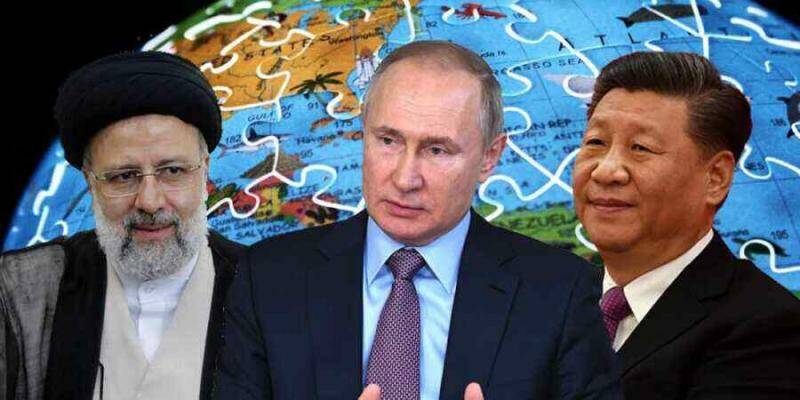
Stanislav Ivanov, leading researcher at IMEMO RAS, PhD historical sciences
As you know, the Islamic Republic of Iran became the ninth full member of the Shanghai Cooperation Organization (SCO) in July 2023. The importance of this event was obvious, since Iran is rightfully considered an established regional power with hydrocarbon reserves of global importance, which occupies a strategic position in the north-south and east-west transport corridors.
Iran’s accession to the SCO meant another step towards the development of regional integration in various fields, in particular, in such megaprojects as the Chinese “One Belt – One Road” and the Trans-Caspian International Transport Route. Even before receiving official status as a member of the SCO, Tehran actively spoke at the forums of this organization with initiatives to develop bilateral and multilateral ties in the SCO space and increase the level of regional security.
On November 2, 2023, Major General Rahim Safavi, an adviser to the Supreme Spiritual Leader of Iran Ali Khamenei, during his visit to China, made a proposal to conclude a “non-aggression pact” between the countries that are members of the SCO. According to him, such an agreement will begin the process of ensuring security and sustainable peace in the region. It should be noted that several years ago, the Iranian leadership made a similar proposal to the Arab countries of the Persian Gulf, but did not meet any reciprocal interest from them. Then only Iraq supported Tehran’s initiative. The envoy of the Iranian Leader R. Safavi in Beijing also noted that the armed forces of Iran and China need to achieve a common understanding of external threats and common interests.
Despite the fact that the SCO pays great attention to solving pressing problems of trade and economic integration and the development of communications, the main goals of this organization are to strengthen trust between its participants in the military field, ensure peace, security and stability in the region, combat terrorism, separatism and extremism. It is no coincidence that joint anti-terrorism exercises are held on a regular basis within the SCO.
It is no secret that integration processes within the SCO are taking place against the backdrop of ongoing border and territorial disputes and conflicts between members of this organization. The most serious unresolved issue is the partition of the territory of the former princely state of Jammu and Kashmir by India, Pakistan and China. From time to time, large-scale terrorist attacks and armed clashes break out in that region. It has not yet been possible to completely normalize the situation on the Tajik-Kyrgyz border due to disputed areas and water resources.
Therefore, R. Safavi’s proposal made in Beijing aroused some interest among SCO members. It is quite possible that the Iranian initiative will be continued and will be included in the agenda of the next summit of the organization. Of course, the SCO countries would not like to be drawn into the protracted conflict between Iran and Israel, the United States, and the monarchies of the Persian Gulf, and a possible non-aggression pact will most likely be limited to the borders of the SCO member states.
On October 26 of this year, during a meeting of the Council of Heads of Government of the SCO countries in the capital of Kyrgyzstan, Bishkek, First Vice President of Iran Mohammad Mokhber also proposed creating a regional hub “Shanghai Energy” for energy trade, exchange and ensuring energy security. At the same time, he emphasized that this refers not only to fossil fuels, but also to electricity and renewable energy.
As part of this initiative, Tehran proposed the creation of a fund of interested investor countries to jointly finance petrochemical projects and emphasized the country’s readiness to provide engineering services and produce equipment for the oil, gas and petrochemical sectors. M. Mokhber announced his readiness to export technical and engineering equipment during the first stage of creating equipment for the oil and gas industry.
Iran also considers it necessary for the SCO member countries to intensify their mutual settlements in national currencies. In this direction, Tehran is finding more and more supporters and the volume of turnover of national currencies in the SCO is steadily growing. The Chinese yuan is becoming the most popular currency in the region.
It is becoming increasingly clear that Iran is seeking to make the most of its accession to the SCO to speed up its exit from international isolation and strengthen its position within the framework of a new regional bloc independent from the West. It seems that the Iranian leadership expects to achieve significant success in the region and on the international stage, while its potential opponents in the person of Israel and the United States are involved in a large-scale conflict in the Gaza Strip, and the Arab and Muslim communities, and part of the Western audience, find themselves in this particular situation on “one side of the barricades” with Iran.
This was confirmed by the results of the vote at the UN General Assembly on October 27, 2023 on a draft resolution of a group of Arab countries calling for an immediate truce in the Palestinian-Israeli conflict zone. Canada’s proposal to include a clause condemning Hamas did not receive the necessary votes to pass.

Location: 103 Kurortniy Prospekt, Sochi, Russia. The Radisson Lazurnaya Hotel
There must be time
Here are the terms of participation
Comments
0